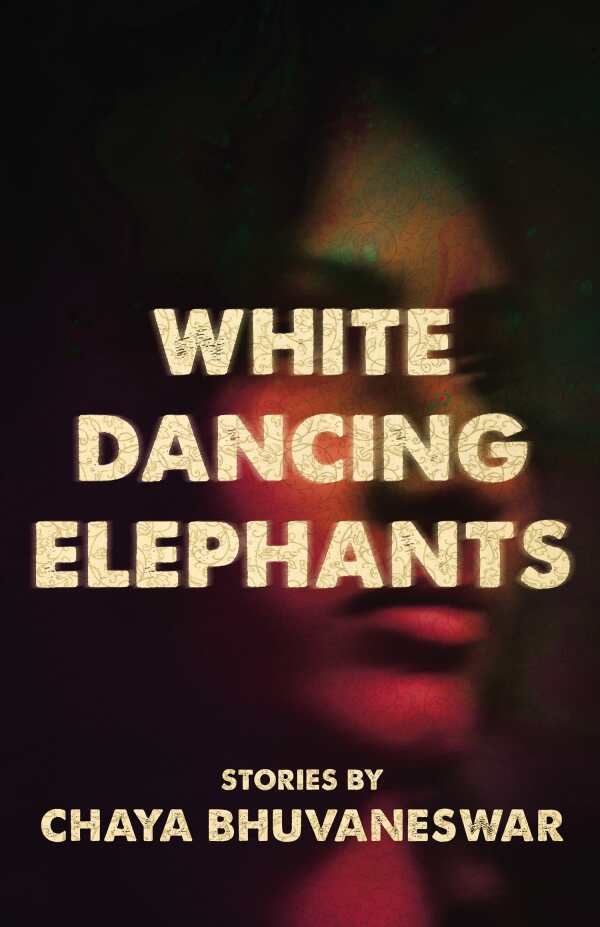White Dancing Elephants
Chaya Bhuvaneswar’s stories are brooding, precise, and painful indictments of patriarchal cultures. They primarily follow women of color through harsh personal and postcolonial landscapes. Characters navigate the expectations and demands and others; they also often work, despite their best conscious intentions, to live inside stories that they feel are not their own.
A woman in her forties drifts through the rain-soaked streets of London, lamenting the loss of a miscarried child. A wife wrestles with her fragile health and jealousy over her husband’s AI breakthrough. A young boy escapes into folktales, avoiding his grief over a lost sister and an abusive father, but seeing his sister’s face everywhere.
In “The Shaker Chair,” a woman grapples with the losses implicit in her upper-crust life and the pains that her successes cover. In “Orange Popsicles,” a immigrant college student’s devastating encounter with a predator drives home the vulnerability of women in misogynistic systems.
Women are abused and discarded in other stories as well, though something essential and ferocious about them perseveres. They resign themselves to cold cultural lines and traditions, becoming “successful at sustainable unhappiness”: “The whole idea of choice, it’s just a Western myth,” one woman reflects. Narration styles are at once detached and needful. Eroticism springs up in unexpected corners; elsewhere, innocence is snuffed out.
Colorism, homophobia, and racism toward and among women of color are frequent, acid themes. The details here are realistic and sharp: observations of “sausage-casing cleavage”; of books so fine that “a good wind would blow away the words”; of gilt frames and expensive fabrics and baubles that never satisfy. Of vicious poison that chokes the lungs, and of storied forests that once knew better times.
Radical and searing, the stories of White Dancing Elephants demand and warrant an attentive, listening audience.
Reviewed by
Michelle Anne Schingler
Disclosure: This article is not an endorsement, but a review. The publisher of this book provided free copies of the book to have their book reviewed by a professional reviewer. No fee was paid by the publisher for this review. Foreword Reviews only recommends books that we love. Foreword Magazine, Inc. is disclosing this in accordance with the Federal Trade Commission’s 16 CFR, Part 255.

